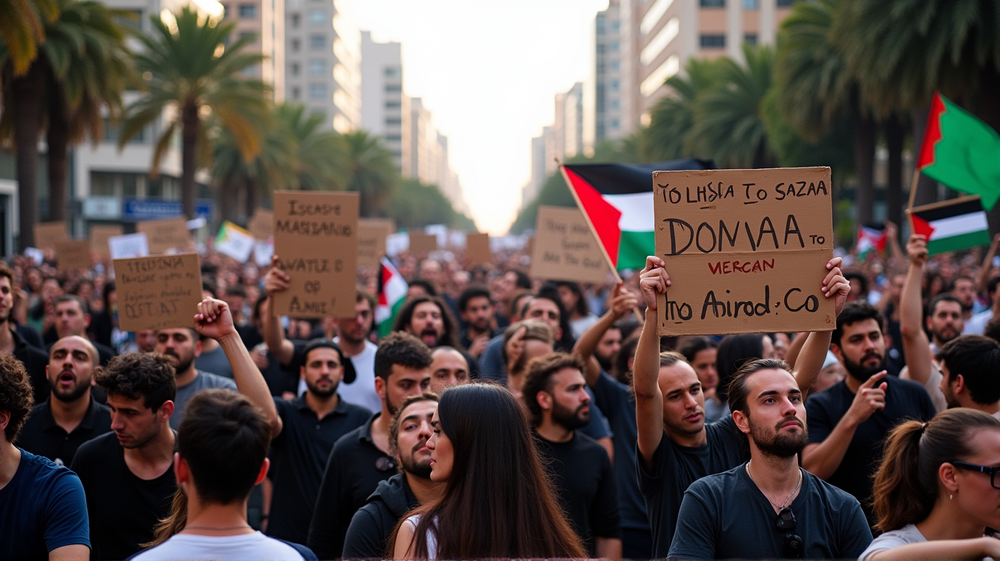Israeli Prime Minister Benjamin Netanyahu finds himself at the center of a national storm as mass protests erupt against his handling of the ongoing Gaza conflict. Criticized for failing to secure the release of Israeli hostages and accused of appeasing Hamas, Netanyahu’s stance has polarized the country.
The Public’s Voice Resounds
This week, Tel Aviv’s streets became the backdrop for the largest protests seen in two years of war. Over 400,000 demonstrators, driven by frustration and determination, marched for change. Their placards reflected sorrow and revolutionary fervor, demanding the government take action to end the hostilities and secure the return of hostages.
According to the protesters, Netanyahu’s policies do more harm than good, toughening Hamas’s stance and prolonging an already devastating conflict. “May your memory be a revolution,” echoed Hersh Goldberg-Polin’s father’s eulogy, now a rallying cry against the relentless cycle of violence.
Netanyahu’s Controversial Stand
Netanyahu’s critics, including Israeli opposition leader Yair Golan, accuse him of strengthening Hamas by channeling funds that ultimately enable militant activities. Netanyahu, however, contends that defeating Hamas is crucial for Israel’s security and the release of hostages.
Despite mounting pressure, Netanyahu appears resolute. In a tense climate, his strategy receives support from international allies, with statements from US leaders aligning with an aggressive stance against Hamas.
A Nation Divided
Whilst Netanyahu sees the defeat of Hamas as essential, many Israelis advocate for negotiations and a ceasefire, wary of the humanitarian toll and the ever-rising death count, now reaching over 62,000 Palestinians according to the Palestinian health ministry.
Amidst this discord, divisions within Israeli society are stark. The protests showcase widespread discontent, challenging the current administration’s policy and how deeply the conflict has permeated daily life.
A Call for Peaceful Resolution
Amid strategic plans to seize control of Gaza City, there is an urgent call from both within Israel and international mediators to halt the offensive. Egyptian and Qatari efforts to broker a ceasefire reflect hope for diplomacy over destruction.
As the chaos unfolds, the world watches closely. Can Netanyahu navigate this turbulence and steer Israel towards a resolution that secures peace and fulfills the robust demands of its citizens? The answer remains uncertain, yet the call for change resounds louder than ever.
According to The Guardian, the ongoing discussions have become a pivotal moment in this longstanding conflict, which headlines a narrative of division and hope.












